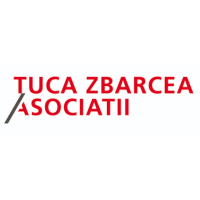

Legal Director | Sun Wave Pharma




Dan Richiteanu
Legal Director | Sun Wave Pharma
How do you approach managing legal aspects during periods of instability or crisis to ensure the organisation’s resilience?
Fast action approach: spot the main risks, pull in a small team and quick legal advice, put short-term fixes in place so operations/business keep running, then quick review and better processes.
What strategies would you recommend for a successful digital transformation?
Data-mapping and risk-first plan, implement improvements in phases, and assess privacy into every step.
What are some experiences that stand out from your career?
Built a small, pragmatic legal team, hands-on in M&A for the org expansion, and sit in board meetings to present the risk matrix and the group’s legal status — issues, mitigations, recommended decisions — while owning the DoA procedure and approval flows.
What trends in the legal world are you most closely observing?
I am closely following four key trends that are reshaping how legal departments operate and manage risk. The first is the regulation and responsible use of generative AI. As adoption accelerates, it is essential to establish clear internal policies governing intellectual property, data usage, and confidentiality to ensure compliance and ethical use. The second priority is tightening sanctions and compliance checks, particularly in light of increasing geopolitical tensions and evolving international trade restrictions. Third, I am observing heightened focus on pharmaceutical supply chain resilience, with companies adopting dual-sourcing strategies to mitigate disruption risks and ensure business continuity. Finally, there is a strong movement toward advancing legal operations—implementing standardised templates, contract automation, and performance metrics (KPIs) to increase efficiency and allow legal teams to focus on higher-value strategic work.
What are the major changes to the legal landscape that you predict over the next five to ten years?
Over the next decade, I expect the legal landscape to undergo transformative shifts across several areas. AI governance frameworks will become standard, with human review and oversight remaining critical to ensure accountability and ethical compliance. Data localisation and flow mapping will grow increasingly complex as global privacy laws evolve and cross-border data transfers face tighter regulation. Sanctions and geopolitical controls will continue to expand, requiring more sophisticated monitoring and compliance mechanisms. ESG enforcement and litigation risk will intensify, as regulators and stakeholders demand measurable proof of sustainability commitments. Lastly, legal operations automation will become a fundamental component of legal practice—embedding efficiency, transparency, and data-driven decision-making into every aspect of in-house legal work.